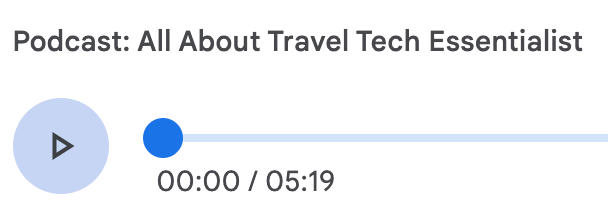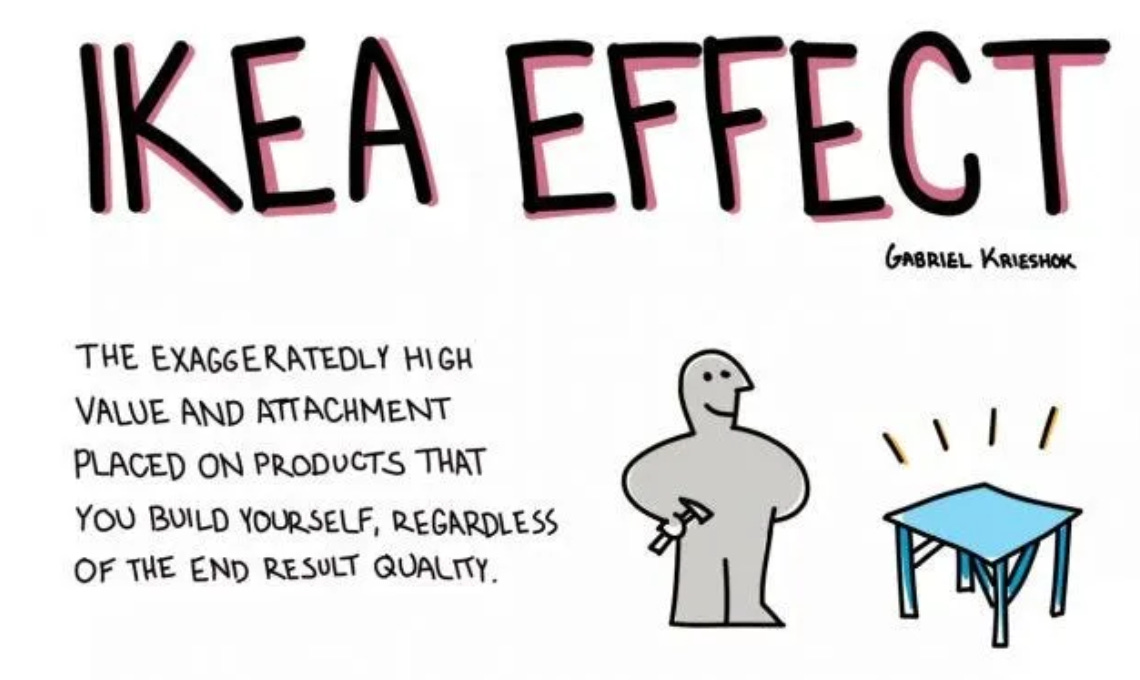A few of this newsletter’s stories focus on the power of control. From travel AI giving users the freedom to shape their trips, to a restaurant’s dice-roll game adding an element of choice, control makes experiences feel more personal. In B2B, companies often choose incumbents to maintain their feeling of control, but modern hotel stacks let businesses take charge of their future. The right balance between automation and control empowers, whether customizing travel guides or optimizing business operations.
Thanks to Propellic for sponsoring this newsletter
It’s time to start developing your 2025 marketing plans, and Propellic has plenty of insights to share. Whether you’re in startup mode or scaling up, they’ve identified the key components of a marketing strategy that many travel marketers tend to overlook. Discover the five most common mistakes Propellic sees and learn how to avoid them.
0. The most clicked link in the previous newsletter
The most clicked link in Travel Tech Essentialist #154 was Ahref’s travel SEO guide.
1. This podcast isn’t real… but it sure sounds like it is
I honestly couldn’t tell the difference. Here’s how I did it:
-
I went to Google’s new NotebookLM
-
Opened a new Notebook and added the URL of the Travel Tech Essentialist Newsletter
-
Clicked “Generate audio,” and that was it. In a couple of minutes, I had a deep-dive discussion between two hosts about Travel Tech Essentialist.
Give it a listen and judge for yourself:
Would you be able to tell that it’s not real?
The only thing it gets wrong is that the hosts refer to ‘they’ when talking about who’s behind the scenes at Travel Tech Essentialist. Hey AI, it’s just me back here…but all of you out there are making it what it is 🙂
2. Egg Theory applied to AI
Rex Woodbury wrote an interesting post, Egg Theory, and how it can be applied to AI design. Similar to how adding an egg to instant cake mixes makes people feel like they contributed or how the IKEA Effect makes people value the furniture they assemble, small contributions increase user satisfaction and boost engagement. Rex argues that AI products should balance automation with user control and shows how successful AI keeps humans in the loop, increasing satisfaction and trust. Products that combine human work and AI automation and make users feel in control are more likely to succeed. As we adapt, we may become more comfortable with self-executing AI agents, but for now, some human involvement is crucial.
3. Egg Theory applied to Travel AI
Alex Kremer makes a case for applying the Egg Theory to AI in travel to give users that same feeling of contribution. Fully automated trip planners often fall flat because they remove the joy of discovery. Users don’t just want a pre-packaged itinerary; they want to feel like they’ve found something special. Kremer suggests that travel AI will need to evolve through several UX stages, gradually allowing users to give up more control as they get comfortable with automation. For now, though, travel companies should focus on keeping users involved, letting them “add the egg” to create a more engaging experience.
4. The most sought-after travel guide is a Google Doc/Map
In line with making trip planning personal, a Thrillist article points out that personal Google Docs and Google Maps are becoming the go-to travel guides. Instead of relying on AI-generated or influencer recommendations, people create and share their own highly curated lists with friends. These guides are full of personal recommendations for places they’ve actually been to. It’s a more authentic way to travel, and these docs feel special because they’re not just passed around to anyone. They’re for people who want to avoid the typical tourist spots and discover something unique.
And yes, like every travel planning and discovery article, this one also mentions finding places “off the beaten path,” so go ahead and mark that on your travel article bingo card.
5. The emotional drivers of B2C vs B2B
Consumer marketers are very focused on establishing an emotional connection between the brand and the user. Roelof Botha, Managing Partner at Sequoia, famously said he only invests in companies that let consumers indulge in one (at least) of the seven deadly sins. These deep human desires separate the products we use from the ones we can’t stop using: Tinder (lust), Uber Eats (gluttony), Robinhood (Greed), Netflix (sloth), X (wrath), Instagram (envy), LinkedIn (pride).
However, the B2B landscape operates on a different emotional trigger: fear. As positioning expert April Dunford shared on Knowledge Project podcast, fear drives many B2B purchasing decisions: fear of making the wrong choice, looking incompetent, or getting fired. This fear gives incumbents a significant advantage over startups. The old saying, “Nobody ever got fired for buying IBM,” rings true. Nobody will get fired for picking Salesforce or whatever large incumbent dominates your space. Your potential customers know that choosing a risky, unproven option could backfire, and that’s where their fear kicks in. It is better to address this fear head-on by highlighting the unique value your solution offers that the incumbent can’t match, for instance.
6. Andreessen Horowitz to invest $23 million in seed startups in the next 2 weeks
Andreessen Horowitz (a16z) launched SPEEDRUN, a new seed-stage program investing $750,000 in each of 30 selected startups, with a total of $23 million. Applications will be open through September 30th, and a16z aims to get back to applicants within ~3-4 weeks of submission. Verticals of interest include AI, gaming, interactive platforms, playable apps, AR/VR, UGC and Web3.
The 12-week accelerator kicks off in January 2025 in San Francisco, featuring speakers like Mark Pincus (Zynga), Spencer Rascoff (Zillow), and Sean Rad (Tinder), and ends with a Demo Day for 500+ investors.
Good luck!
7. Modernizing the hotel stack
Gaurav Tuli, Partner, and Betsy Mulé, Senior Associate at F-Prime Capital (managing over $4.5 billion), are investor heavyweights. Gaurav has led investments in travel companies like Lighthouse, Canary Technologies, and Deal Engine. Beyond their expertise and investment savvy, what truly makes them stand out for me is their kindness, humility, and sheer intellect. When they talk (or write), I listen.
In their recent piece, Modernizing the Hotel Stack, they highlight a pivotal moment for B2B travel tech startups as hotels increasingly adopt modern technologies to overcome operational inefficiencies. In property management systems, legacy solutions like Opera and Agilysys are being replaced by cloud-based platforms such as Mews, Stayntouch, and Cloudbeds. In guest experience, companies like Duve and Canary Technologies enable contactless check-ins, digital tipping, and AI-driven services. Lighthouse, Duetto, Siteminder and Sojern are transforming commercial operations, helping hotels optimize distribution, pricing, and profitability. All in all, B2B travel tech startups are playing a starring role in transforming the hotel tech stack.
8. Increasing sales and loyalty with a dice roll
Rory Sutherland (Vice Chairman of Ogilvy) is known for using psychology to transform how businesses engage with customers, finding simple ways to influence behavior without changing the core offering.
Dishoom, a popular Indian restaurant in the UK, was trying to drive more traffic before 6pm on weekdays. The restaurant had been offering a discount for early diners, but it wasn’t getting much results. Rory suggested a new approach: customers who paid their bill before 6pm would roll a dice. If they rolled a 6, their meal was free. Although the odds were the same as a 16.6% discount, the dice game felt more exciting. Customers also tended to spend more, not wanting to feel foolish for missing out on the possibility of a free meal after ordering cheaply. The excitement of the gamble led to more diners, and the whole thing was widely shared on social media, attracting more customers. Watch the 1-minute video here.
9. Brand Whispers
In the last newsletter, I wrote about ‘City Whispers’ and how cities send subtle messages that shape who we are. The same goes for the brands we use. Each has its whisper, communicating distinct messages. Here’s what some travel companies might be whispering, at least to me:
-
Expedia: “Be savvy and informed.”
-
CitizenM: “Be modern and efficient.”
-
Airbnb: “Live like a local wherever you are.”
-
TravelPerk: “Empower your employees with efficient travel.”
-
Faye Insurance: “Travel with peace of mind.”
-
Amex Travel: “You deserve the best.”
-
Caravelo: “Rethink your airline’s loyalty and revenue model.”
-
Dharma Travel: “Travel with passion.”
-
Amadeus: “Lead with cutting-edge technology.”
-
Ryanair: “Prioritize affordability.”
What messages are you hearing from these or other travel brands?
10. Flat and down rounds hit decade-high
Flat and down rounds for US VC-backed companies hit a decade-high in the first half of 2024, comprising 28% of all deals, according to PitchBook’s Q2 2024 US VC report (no paywall). Companies now take a median of 2.1 years to raise another round, compared with 1.2 years in 2021. As more startups hit the two-year mark and look to raise funds, we might see a further increase in flat and down rounds. Existing investors without anti-dilution protections and employees whose stock options may fall out of the money are at the most risk.
Travel Tech Essentialist Job Board xx
-
FLYR | Staff Product Manager | Miami; Bogotá
-
WhereTo | Software Engineer Lead | Remote; Canada
-
Kantox | Account Executive – Travel Industry | Barcelona
-
Dharma | Experience Designer | Remote
-
Airhelp | Public Relations Manager | Barcelona; Berlin; Gdansk; Krakow
The Travel Tech Essentialist Job Board has great companies hiring for 1178 jobs.
Are you fundraising?
If you are a startup looking to raise a round (from pre-seed to Series D), I can help (for free). Travel Investor Network is a private platform where I recommend innovative travel startups to investors and innovators. If you’re interested, please start by completing this form.
If you like Travel Tech Essentialist, please consider sharing it with your friends or colleagues. If you’re not yet subscribed, you can do so here:
And, as always, thanks for trusting me with your inbox.
Mauricio Prieto










